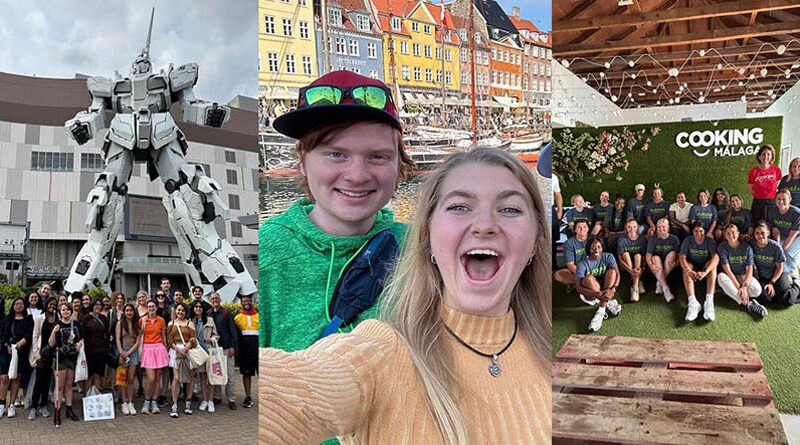Queens University Charlotte Students Experience Japan Subculture
After wrapping up the spring 2024 semester, 53 students packed their bags and headed overseas as part of the John Belk International Program (JBIP) at Queens University. These global experiences provide unique opportunities and academic credit to full-time undergraduate students. While Queens provides funding to cover most of the costs, scholarships are also offered to qualified students.
Students had the opportunity to study anime art and music in Japan, explore the culture of health in Scandinavia, or study the multiple dimensions of health and wellness in Spain. Later this month, 29 students will head to Paris with faculty from the Knight School of Communication and McColl School of Business to report on their experiences at the 2024 Summer Olympics.
“These programs are crucial because they propel students beyond the classroom, immersing them in the real world and bringing the curriculum to life,” said Angelle Edwards, executive director of the Myrta Pulliam Center for International Education. “JBIP experiences go beyond acquiring knowledge about a destination or a global topic. They foster cultural understanding, self-awareness, and a sense of global citizenship.”
For over a decade, Edwards has meticulously designed study abroad programs that enrich both students’ academic journeys and personal growth. Collaborating closely with faculty, she creates transformative experiences. “Many of our students are embarking on their first international adventure, and for some, their first flight,” Edwards explained. “Even seasoned travelers gain fresh perspectives when exploring a new culture under the guidance of our expert faculty.”
“In our interconnected world, it’s important for students to recognize their impact,” Edwards continues. “Understanding how our actions can impact others globally, and vice versa, is essential for developing informed and responsible citizens. By equipping Queens students with this global perspective, we empower them to become active contributors to society, embodying our university’s motto, ‘Not to be served, but to serve.’”

